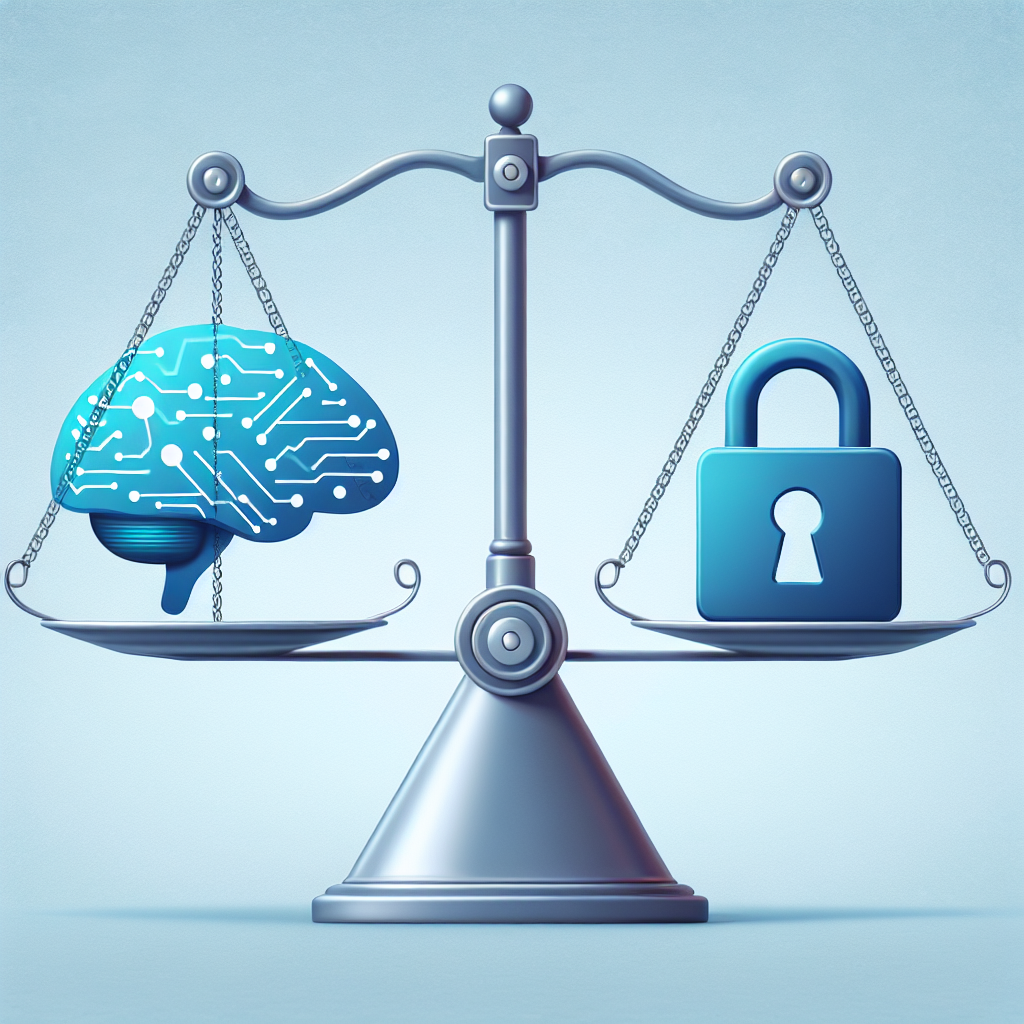The rapid advancements in artificial intelligence (AI) technology have revolutionized many aspects of our daily lives, from personalized recommendations on streaming services to self-driving cars. However, with these advancements comes a growing concern about privacy and data security. As AI becomes more sophisticated, the amount of personal data being collected and analyzed also increases, raising questions about how this information is being used and who has access to it. In this article, we will explore the importance of balancing AI advancements with privacy concerns and discuss some of the key challenges and solutions facing both individuals and organizations.
Privacy Concerns in the Age of AI
One of the main concerns surrounding AI technology is the potential for data breaches and unauthorized access to sensitive information. As AI systems rely on vast amounts of data to learn and make decisions, there is a risk that this data could be misused or stolen by malicious actors. In addition, the use of AI in surveillance and monitoring applications raises concerns about the erosion of privacy rights and the potential for mass surveillance.
Another key issue is the lack of transparency surrounding AI algorithms and decision-making processes. As AI systems become more complex and autonomous, it can be difficult to understand how they arrive at their conclusions or predictions. This lack of transparency can lead to bias and discrimination, as well as a loss of control over our personal data and digital identities.
Balancing AI Advancements with Privacy Concerns
To address these privacy concerns, it is essential to strike a balance between the benefits of AI technology and the protection of individual rights and freedoms. This requires a multi-faceted approach that includes technical solutions, regulatory frameworks, and ethical guidelines.
One important step is to implement strong data protection measures to ensure that personal information is collected, stored, and used in a secure and responsible manner. This includes encryption, data anonymization, and access controls to prevent unauthorized access to sensitive data. Organizations should also be transparent about their data practices and obtain informed consent from individuals before collecting or processing their personal information.
In addition, regulatory bodies play a crucial role in setting guidelines and standards for the responsible use of AI technology. For example, the European Union’s General Data Protection Regulation (GDPR) includes provisions on data protection and privacy rights that apply to AI systems. Similar regulations are being developed in other countries to protect individuals’ privacy rights in the age of AI.
Ethical considerations are also important when balancing AI advancements with privacy concerns. Organizations should ensure that their AI systems are designed and deployed in a fair and transparent manner, without discriminating against certain groups or individuals. This includes conducting regular audits and assessments of AI systems to identify and mitigate bias and discrimination.
FAQs
Q: How can individuals protect their privacy in the age of AI?
A: Individuals can protect their privacy by being aware of the data they share online and taking steps to secure their personal information. This includes using strong passwords, enabling two-factor authentication, and being cautious about the information they share on social media and other online platforms.
Q: What are some examples of AI technologies that raise privacy concerns?
A: Some examples of AI technologies that raise privacy concerns include facial recognition systems, predictive policing algorithms, and personalization algorithms used by social media platforms. These technologies have the potential to infringe on individuals’ privacy rights and raise questions about the ethical use of AI.
Q: How can organizations ensure compliance with data protection regulations when using AI technology?
A: Organizations can ensure compliance with data protection regulations by implementing strong data security measures, conducting privacy impact assessments, and obtaining informed consent from individuals before collecting their personal information. It is also important to stay updated on regulatory developments and guidelines related to AI technology.
Q: What role do ethics play in balancing AI advancements with privacy concerns?
A: Ethics play a crucial role in ensuring that AI technology is used in a fair and transparent manner that respects individuals’ privacy rights. Ethical considerations include preventing bias and discrimination in AI systems, promoting transparency and accountability, and prioritizing the well-being of individuals and society as a whole.
In conclusion, balancing AI advancements with privacy concerns is a complex and multifaceted challenge that requires collaboration between individuals, organizations, and regulatory bodies. By implementing strong data protection measures, regulatory frameworks, and ethical guidelines, we can harness the power of AI technology while safeguarding our privacy rights and digital identities.

